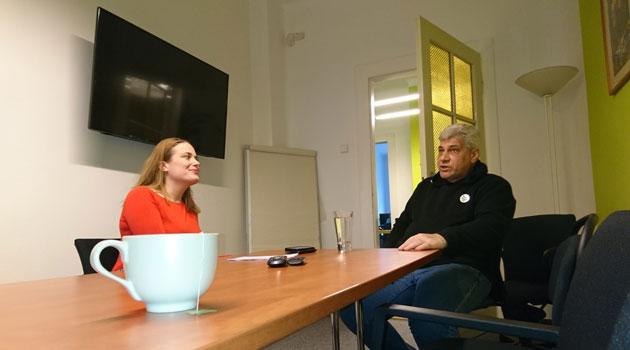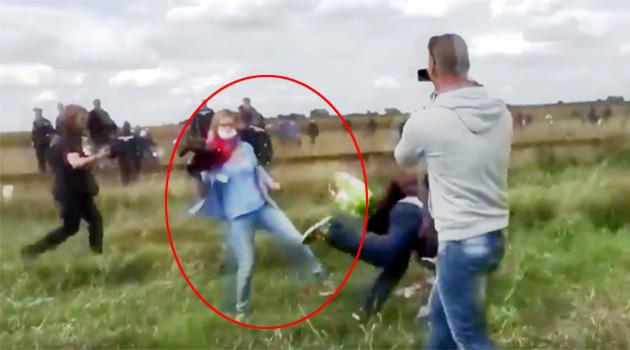Jozef Miker: It irritates me when Workers Party supporters recruit Roma against migrants

Romani activist and volunteer Jozek Miker has given an interview to news server Romea.cz in which he explains why he has supported the Civil March for Aleppo, which is attempting to draw attention to the wartime conflict in Syria and the issue of refugee reception on the European continent. “The Roma have to see that when even we Roma are perceived as foreigners here, even after 700 years of coexistence, then [migrants] will logically be perceived as a foreign element here also,” Miker said when explaining why he does not comprehend how some Romani people can reject migrants.
Miker is one of the co-founders of the Konexe civic association, which advocates for the purchase and closure of the pig farm in Lety u Písku that stands on the site of a former concentration camp for Romani people. In Krupka, he provides Romani people aid in handling their affairs with the authorities and has involved street youth in the music group De La Negra, as well as co-organizing anti-Nazi demonstrations.
Q: You saw the Civil March for Aleppo on in its way through the Czech Republic: How many people are in it at this moment?
A: Right now about 40, although at the lunch meeting we held in Dejvice with the parish priest, Ruml, more than 200 people came. I was really glad.
Q: What did you serve for lunch?
A: I made cabbage soup and goulash with dumplings, and one of our colleague-friends made hummus. They all praised the food, mainly the Poles, who were looking forward to the dumplings.
Q: Why did you decide to support the marchers? Why do you have sympathy for this march?
A: When I first learned about the march I was really sorry I could not participate in it directly also. I am on disability, and in winter I am unable to walk much of a distance – the most I could do would have to be in the summertime. I decided, therefore, to support them at least in this way. I believe these people are doing a good thing, that they are going there to prevent bloodshed, and that they have stood up publicly against what is happening in Syria. Besides, I actually love cooking: When I have a big pot, I know how to fill it. I have cooked for many people before, for example during Roma Pride. The Romani bean soup with homemade noodles and root vegetables was a big hit. Some people even took the leftovers with them because it would have been a shame to throw them away.
Q: Who arranged the food for you?
A: In Ústí nad Labem it was the entrepreneur Karel Karika, then it was the evangelical vicar Mikuláš Vymětal and others. On my own I would unfortunately not have had the resources for it, but one can always find a good soul to contribute. Many good people are coming forward with their own initiatives, as individuals, and bringing their own groceries – cakes, various sweet homemade baked goods and stuff like that.
Q: How do Romani people in your area perceive the aid you are giving the marchers and the issue of migrants from war zones?
A: That’s a more complex question on which Romani people are not united. Some of the Romani people from Krupka, where I live, have let themselves be “fooled”, as it were. I can say that I’m absolutely fed up with members of the Romani community who have been allowing themselves to be manipulated by the very same people who recently organized demonstrations against Romani people, for example, various supporters of the Workers Party. Many such people are now coming to visit the Roma and filling their heads with the idea that they, Romani people, must turn against the Arabs. “If God had wanted a one-color world,” I tell them, “then he would have created one.” The Roma have to see that when even we Roma are perceived as foreigners here, even after 700 years of coexistence, then [migrants] will logically be perceived as a foreign element here also. Moreover, I am convinced that each and every person should have the opportunity to travel to any place on earth, chose the one he or she likes most, and live there.
